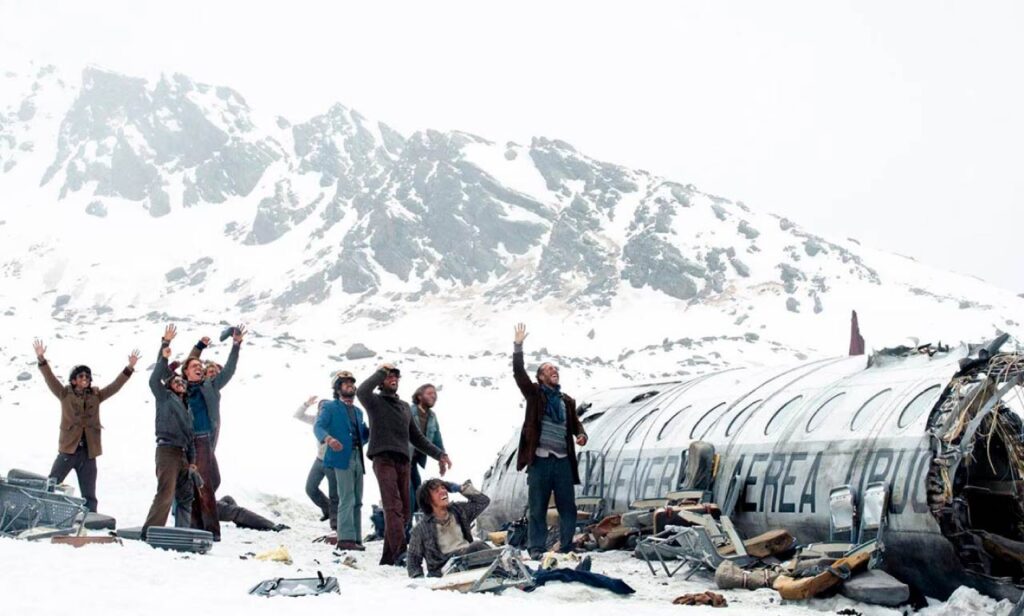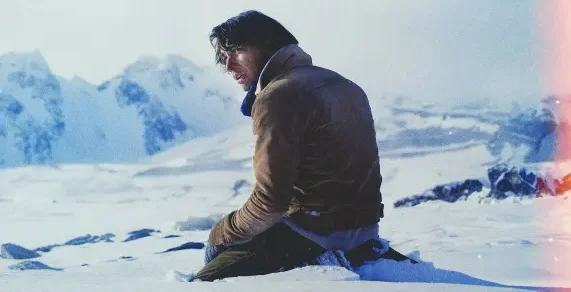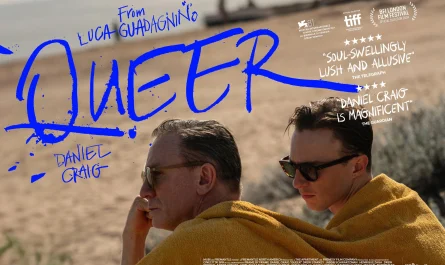Recently nominated for the Academy Award, Society of the Snow (in Spanish, La Sociedad de la Nieve) is a biographical movie starring Enzo Vogrincic, Matías Peralta, and Agustín Pardella, directed by J.A. Bayona, and based on the book La Sociedad de la Nieve by Pablo Vierci. This story is about the Uruguayan Air Force Airplane that fell on The Andes. The director, J.A. Bayona, is one of the most popular film directors with a perspicacious eye for portraying the courage people find to overcome arduous events. He is also known for directing The Orphanage (2007), The Impossible (2012) starring Naomi Watts and Tom Holland, A Monster Calls (2016) starring Liam Neeson and Louis McDougall, and he was chosen by Steven Spielberg to direct Jurassic World: Fallen Kingdom.
For this film, J.A. Bayona stayed true to the original story and respected details without inventing parts for an increased dramatic feel. The story is about how on October 13, 1972, a Uruguayan Air Force plane carrying 45 passengers and crew members, including members of the Old Christians Rugby Club from Montevideo, Uruguay, crashed in the Andes Mountains of Chile while on route to Santiago for a rugby match.
The plane was flying over the “Andes Death Trap,” a dangerous area of the mountains known for its unpredictable weather and extreme terrain. Of the 45 people on board, 12 people died as soon as the plane crashed, and 17 passed days later. The remaining survivors were mostly young men from the rugby team and were stranded in the freezing cold and high altitude, with limited resources. For 72 days, the survivors faced a series of harrowing challenges: they faced sub-zero temperatures, blizzards, and avalanches; they had extremely limited food, water, and inadequate clothing for wind and snow; they faced psychological trauma from the crash and the constant threat of death. Despite all the odds being against them, these men not only survived being stranded in the Andes Mountains for almost three months, but they did so during the winter.
Amongst survivors, Numa Turcatti, Nando Parrado and Roberto Canessa (featured in the movie as a doctor) made several treks across the Andes in search of help. Numa Turcatti narrates poetically everything they face in the mountains, his character and some real-life quotes are authentically represented in the film with words like, (SPOILER ALERT) “There is no greater love than to give one’s life for friends”.
This story has influenced many plots of other movies or shows, such as Alive(1993), starring Ethan Hawke, or the critically acclaimed and Emmy-nominated Yellowjackets (2021). Several productions have used this story as inspiration for their screenplay, but Society of the Snow is arguably the one that stays truest. The story of Uruguayan Air Force Flight 571 is considered a remarkable tale of human survival and resilience, and there is no better director than J.A. Bayona to portray in detail everything that happened and what kept on moving survivors for a better future.
I’m usually one to spoil movies and I delve into what we already know and the facts we have after watching a movie or a show. I’m guessing I should give some spoiler alerts, this time I will gladly go ahead and bless you all with a “Non-Spoiler Alert”. This time, I want to convince you all to watch this film. Especially because it is in Spanish and I’m pretty sure non-Spanish speakers might disregard it because they don’t know the language. Nonetheless, watching it with subtitles will still allow viewers to experience the awe and the touching story of people who kept fighting to live, especially about people who valued life and thought it was worth pursuing it.
When I watched this movie for the first time, I didn’t know what I was getting into. I usually like to surprise myself by watching movies without reading the synopsis. As an actress, I usually feel most connected to a character when I interpret one, but this time I felt incredibly connected to the characters as a viewer. I have never cried this much during ANY movie or show. I try to hold back my tears when a scene gets incredibly sad, but this time it was impossible to keep them inside my eyes. They slightly crawled down until I finally opened myself to the feeling of overwhelming joy for a group of people I didn’t even know.

What moved me the most from this movie is how all the survivors, thought it was worth living and challenging themselves to overcome every difficulty they endured. I have never experienced anything as hard as that, yet I have undergone feelings of depression and wanting to give up. As someone with a previous existential crisis, I have thought about life being meaningless, that nothing makes life as good as I want it to be. The worst part is I’m not the only one, especially not the only gen-zer who has ever felt this way. Of course, environmental, health, financial, and housing crises have left Millennials and Gen-zers despaired. However, are our lives as terrible as we perceive them? I don’t mean to ignore how financial fluctuation affects people’s stability and mental health; I’m not trying to say anyone can overcome anything just because a group of rugby players survived 72 days in the Andes Mountains. I’m saying that if these people tried to find meaning in their lives, no matter the hardship, maybe we could try too. The 70s were an extremely different age than the 2020s, though as long as we are not facing poverty or oppression, most young people can learn how to value themselves and their lives.
As a young woman in 2024, I think I would have given up in the Andes. However, learning about this story has made me think I should strive for more positive thinking and ways to thank the opportunity of being alive. Like many other people, I get caught up in comparing myself to influencers, millionaires, and celebrities and think my life is not as “cool” or “fun” and is a “waste of time”, but have I ever just gone out for a walk and cherished the trees and their leaves swayed by air? Have I ever delighted myself focusing on the feeling of air going in through my nostrils down to my lungs? Have I ever embraced the soft and warm feeling after petting an animal? This movie made me put things in perspective. It made me understand how we live in a rapidly consumeristic world in which we are taught that we are not important and that our lives are meaningless if we are not constantly producing something or working. It made me realize how leisure has been demonized as a synonym for being “lazy” or “mediocre”.
The Uruguayan Air Force Flight incident made its survivors strive for one more time at the beach, one more hug from their mothers or their partners, one more smile from their friends and relatives, and one more kiss from a pet. Do we take all those virtues for granted? Yes! Nowadays we undermine the biggest advantages we have. We can’t even enjoy the natural things we need to survive and have a good life, like being endowed with the Vitamin D we need from the sun.
Maybe some of the survivors thought life was meaningful, especially those who believed in God. However, after facing all those misfortunes, most of them questioned their existence. For example, Numa’s quote:
[narrating] Now when they remember us, they ask themselves, Why didn’t we all get to come back? What does it all mean? You’ll need to find out yourselves. ‘Cause the answer is in you.
My way of interpreting this quote is to find within ourselves what moves us to value our lives and give them meaning. Most importantly, to stop undermining the benefits of being alive. While some take life for granted, others are fighting to live. I’m pretty sure that if most people who are enduring difficulties had the opportunity to enjoy a life without threats, they would do so and welcome it more than those who don’t.






Bạn có thể thoải mái lựa chọn vật phẩm và vũ khí đa dạng để tiêu diệt con mồi hiện ra trên màn hình. live slot365 Chưa dừng lại ở đó, với hơn 50+ boss khủng sẽ giúp ngư thủ mang về phần thưởng cực lớn với giá trị Jackpot hàng tỷ đồng. TONY12-19
Your article helped me a lot, is there any more related content? Thanks!
Can you be more specific about the content of your article? After reading it, I still have some doubts. Hope you can help me. https://www.binance.info/fr/register?ref=T7KCZASX
Thank you for your sharing. I am worried that I lack creative ideas. It is your article that makes me full of hope. Thank you. But, I have a question, can you help me?
Thanks for sharing. I read many of your blog posts, cool, your blog is very good.